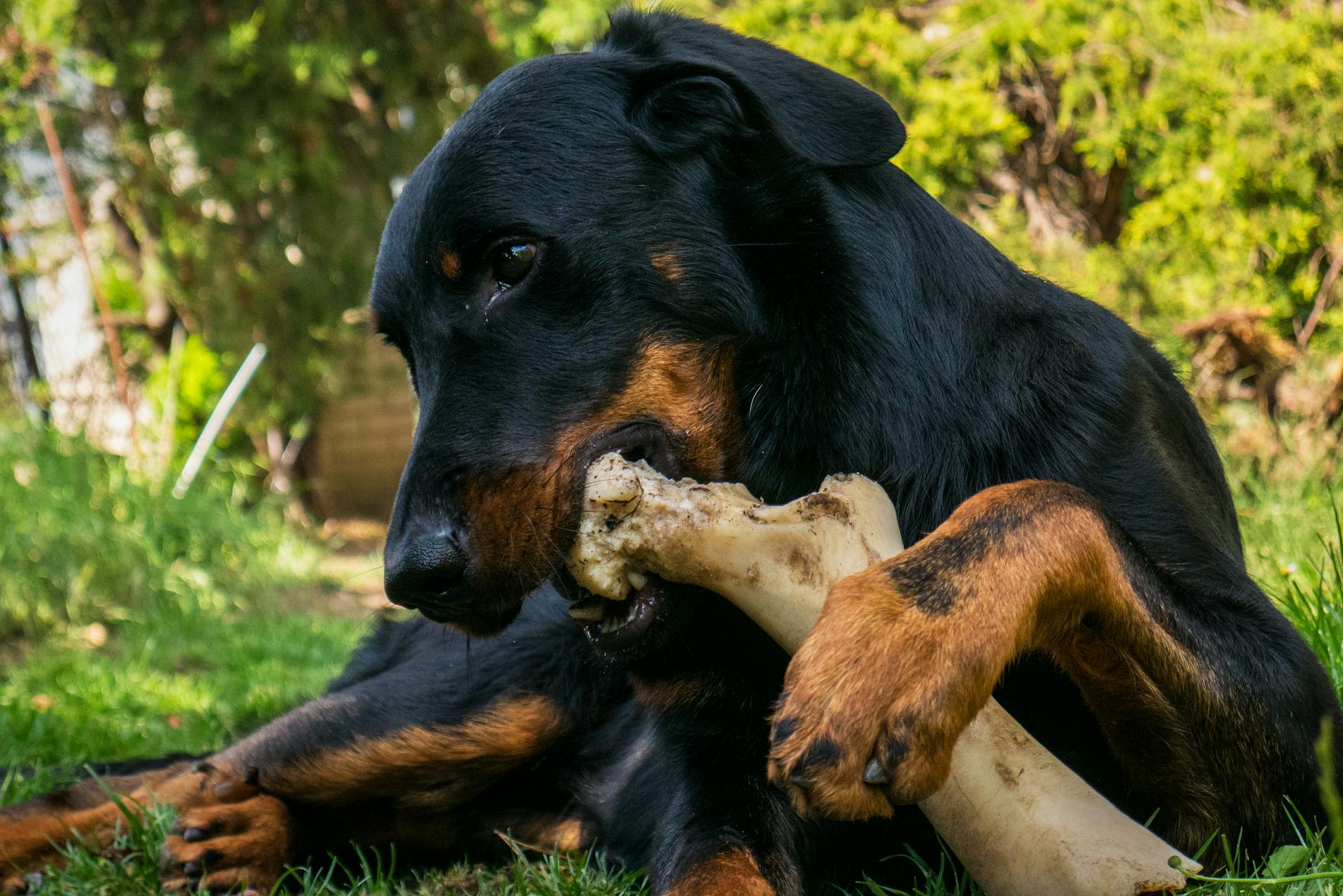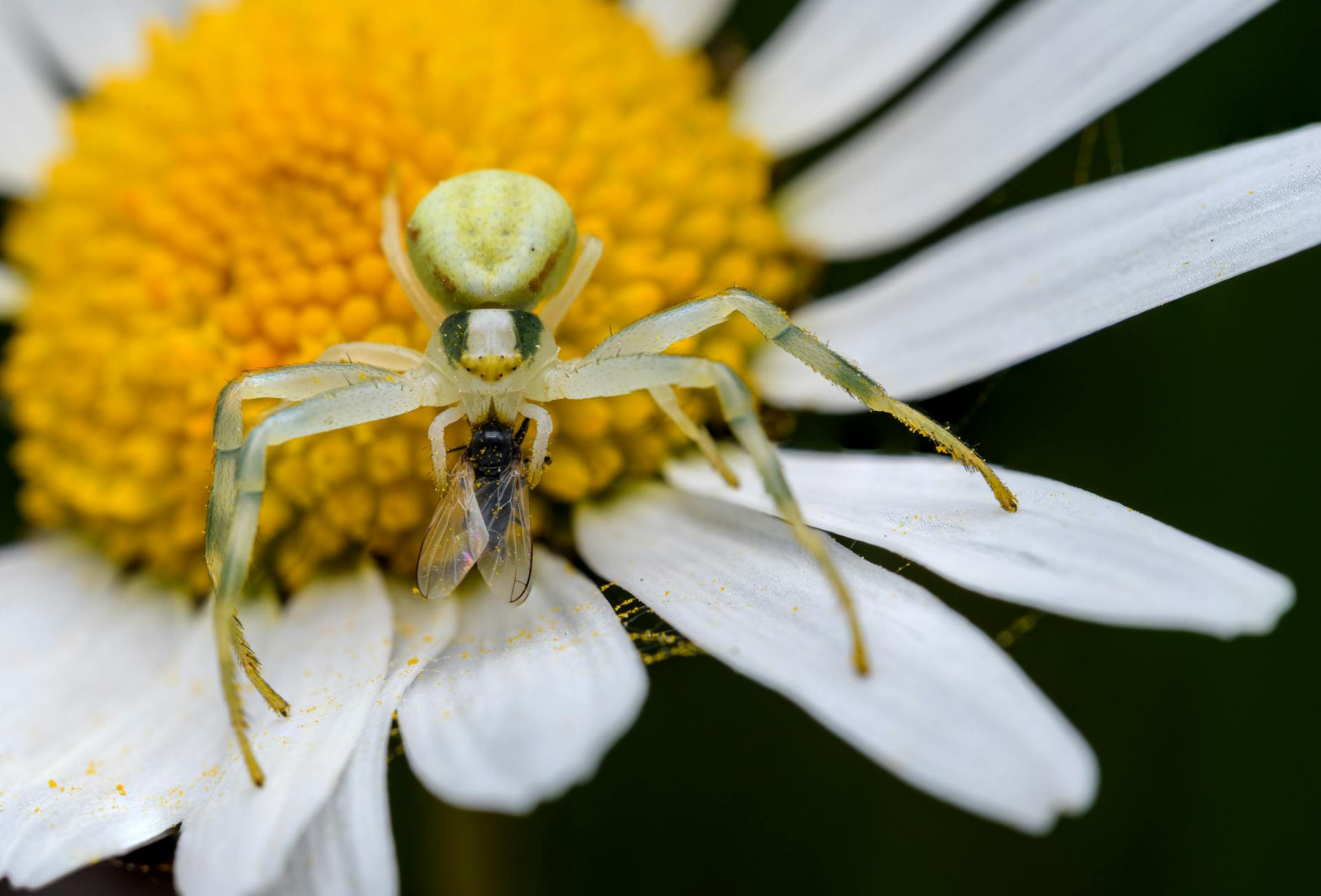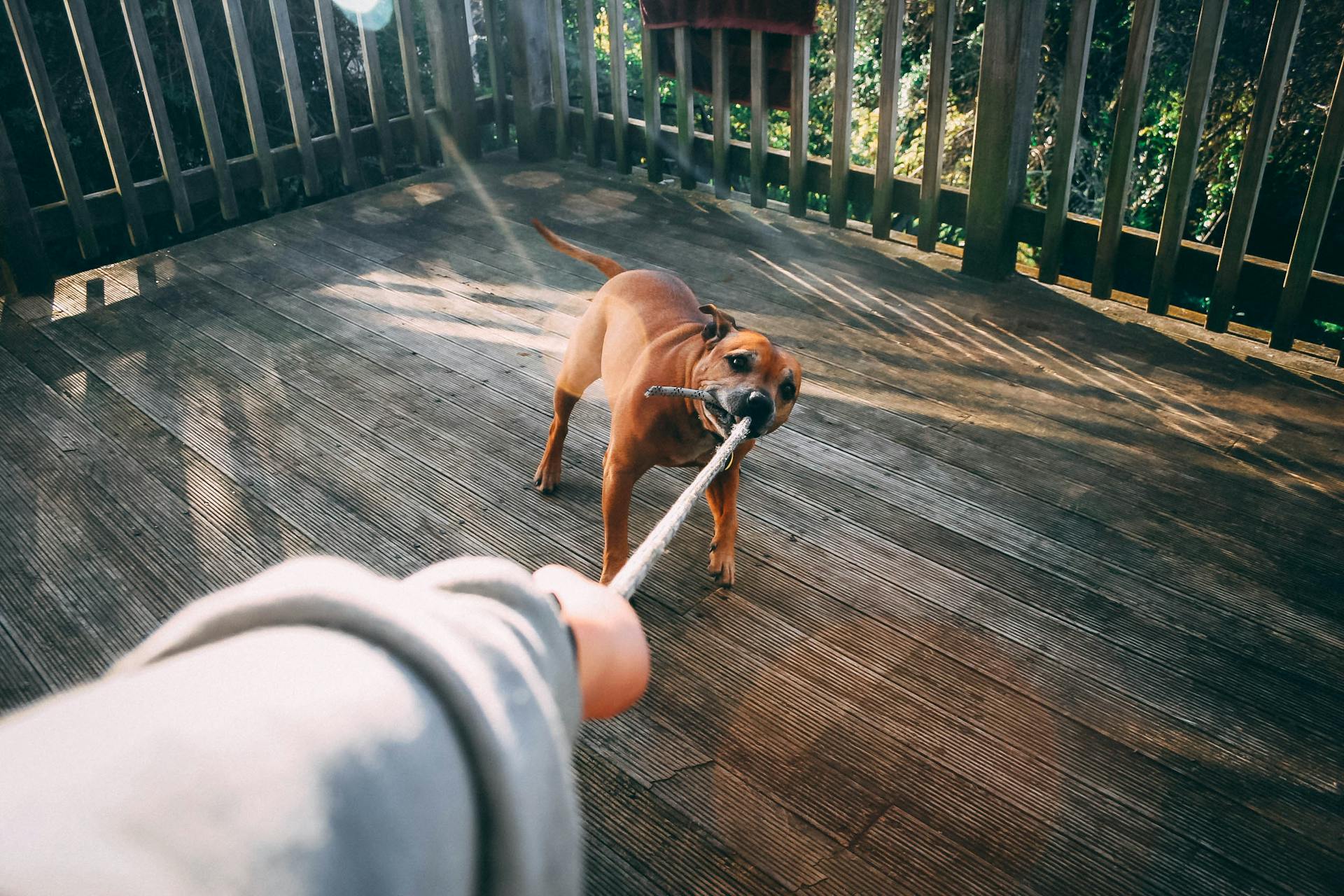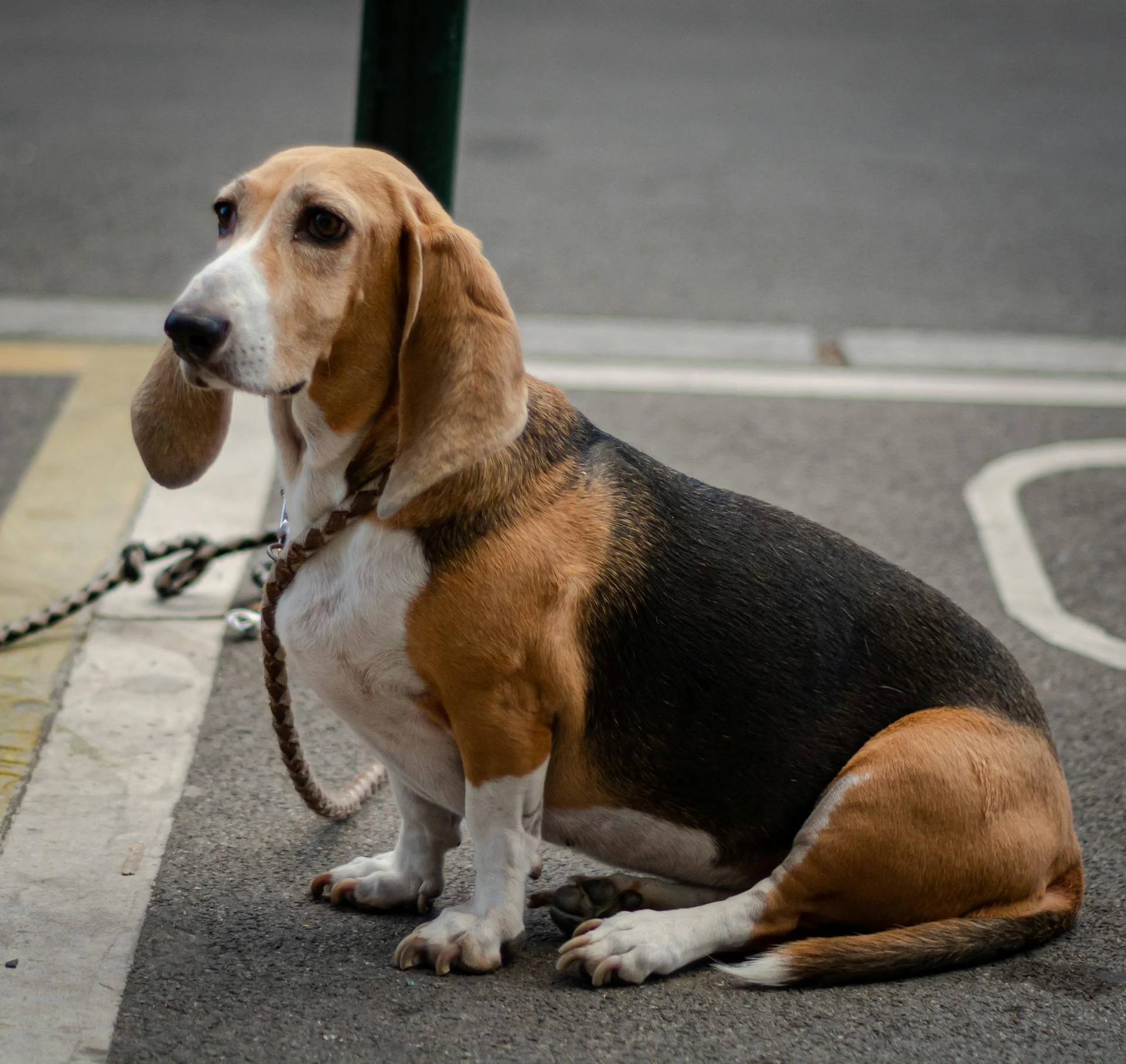
Treeing Walker Coonhounds are naturally inclined to bite and hold onto prey, which can sometimes lead to biting issues with their owners. They have a strong prey drive and were bred to tree small game.
Their history as hunting companions is rooted in their ability to track and chase prey, often with their mouths. This instinctual behavior can be challenging to overcome, especially if not addressed early on.
Treeing Walker Coonhounds require consistent training and socialization to manage their biting tendencies. With patience and positive reinforcement, they can learn to control their instincts and become well-behaved companions.
Treeing Walker Coonhound Temperament
Treeing Walker Coonhounds are even-tempered dogs that are difficult to drive into aggression towards humans. They have minimal chances of biting a person.
Treeing Walker puppies are prone to nipping and biting when playing, exploring the environment, or during teething due to discomfort. Owners should discourage biting before it becomes a habit through redirection and bite inhibition training.
This breed is known for loud, long barks that are almost howl-like. Don’t bring home a TWC if you aren’t able to deal with some barking at home.
Treeing Walker Coonhounds are highly social dogs that struggle being left alone, making them vulnerable to separation anxiety. This is a true disorder that won’t be fixed with obedience training and exercise.
The Tree Walker Coonhound is extremely intelligent and has a knack for training. These dogs are great companions for active singles, couples, and families.
Treeing Walker Coonhounds love the company of humans and other dogs, but they can be sensitive and demand respect. If they’re mistreated, these dogs tend to maintain a retreating personality, preferring to stay away from others for a time.
No, Treeing Walker Coonhounds are not protective. Although a Treeing walker is alert in the field, at home they are mellow and sensitive lovers of comfort.
For another approach, see: Training My Dog Not to Bite
Training and Problems
Training your Treeing Walker Coonhound requires patience and consistency. Short, fun training sessions are key to teaching your dog new skills.
For your interest: Training Puppies Not to Bite
These intelligent dogs need to understand that listening to you is just as fun as sniffing, so be sure to reward them with treats, toys, and praise when they get it right. Maintaining an upbeat composure during training will help keep your dog engaged.
Treeing Walkers can be challenging to train due to their independent nature, but with positive reinforcement and clear communication, you can overcome this obstacle.
Training
Training your Coonhound requires a different approach than other breeds. Their independent nature makes them less responsive to commands.
Hounds, like Coonhounds, are bred to work alone, which means they need to be taught why listening to you is just as fun as sniffing. This can be a challenge, but with the right approach, you can overcome it.
Using short, fun training sessions is a great way to teach your Coonhound new skills. These sessions should be upbeat and engaging to keep your dog interested.
Rewarding your dog with treats, toys, and praise is essential to successful training. This positive reinforcement will help your Coonhound understand what's expected of them.
You might like: Dog Bite Training
Behavior Problems
Treeing Walker Coonhounds can be loud and persistent barkers, so if you're not prepared for the noise, this breed might not be the best fit for you.
Their history as scent hunting dogs has made them prone to following their noses, which can be challenging when it comes to off-leash walks.
Early training can help with this issue, but it's essential to remember that scents will always have a strong pull on your hound.
Keeping your dog on-leash using a long line can be a great way to balance their need to sniff with your need for a safe and enjoyable walk.
Treeing Walker Coonhounds are highly social dogs that can struggle with separation anxiety, which is a legitimate disorder that requires professional help to address.
They may also nip and bite during teething or when playing, so it's crucial to discourage this behavior through redirection and bite inhibition training.
Recommended read: How to Train a Ferret Not to Bite?
Health and Care
Treeing Walker Coonhounds are generally a healthy breed, but like all dogs, they can be prone to certain health issues. They need regular exercise and a balanced diet to stay healthy.
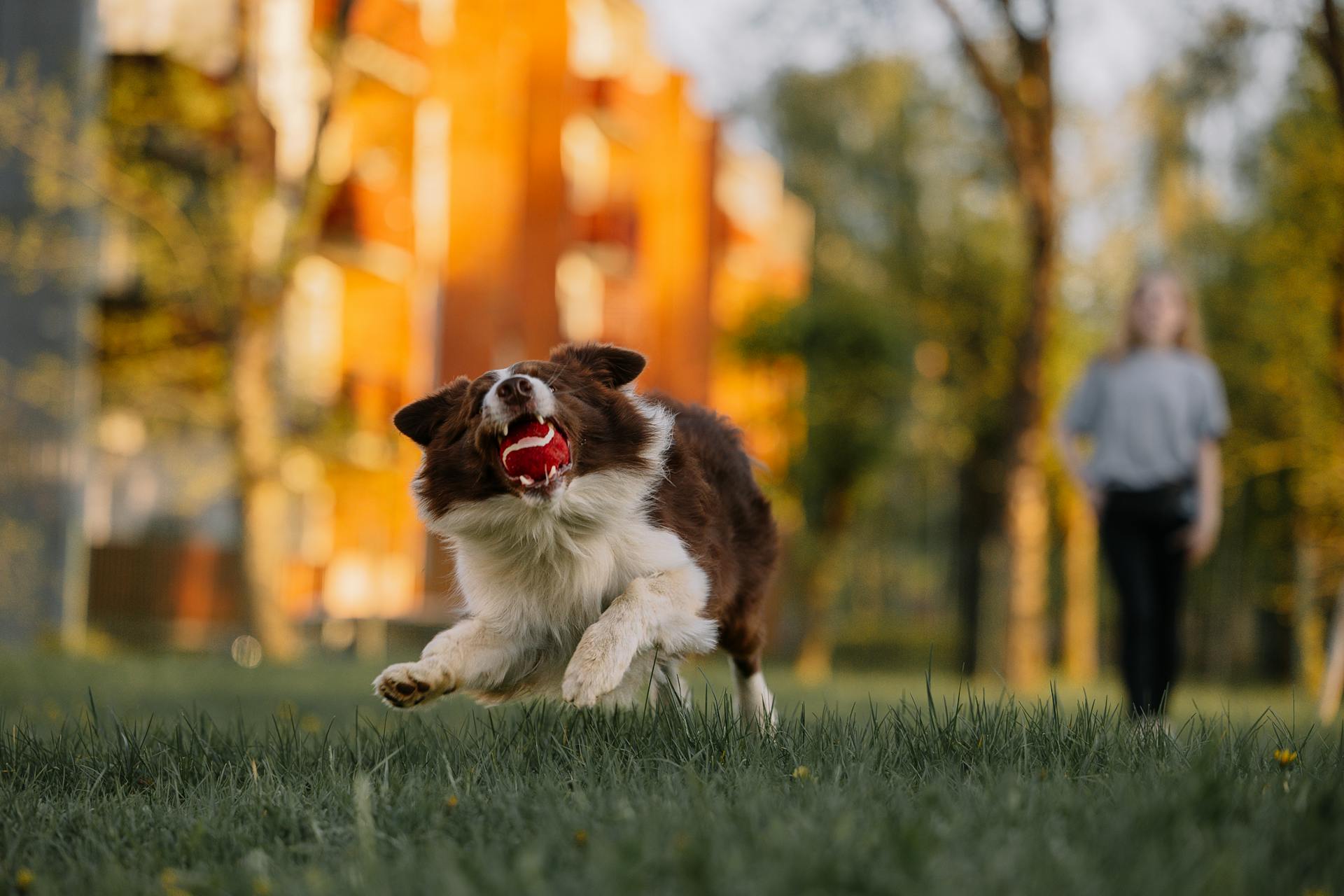
Their ability to hunt requires speed and stamina, which means they must be in top physical condition. Joint dysplasia, age-related cataracts, and ear problems are some common health issues that can affect them.
As with any dog, it's essential to keep an eye out for potential health problems. Two specific issues to be aware of are polyradiculoneuritis and hip dysplasia.
Here are some common health issues that can affect Treeing Walker Coonhounds:
- Polyradiculoneuritis
- Hip Dysplasia
Regular veterinary check-ups and proper care can help minimize the risk of these health issues.
Featured Images: pexels.com
